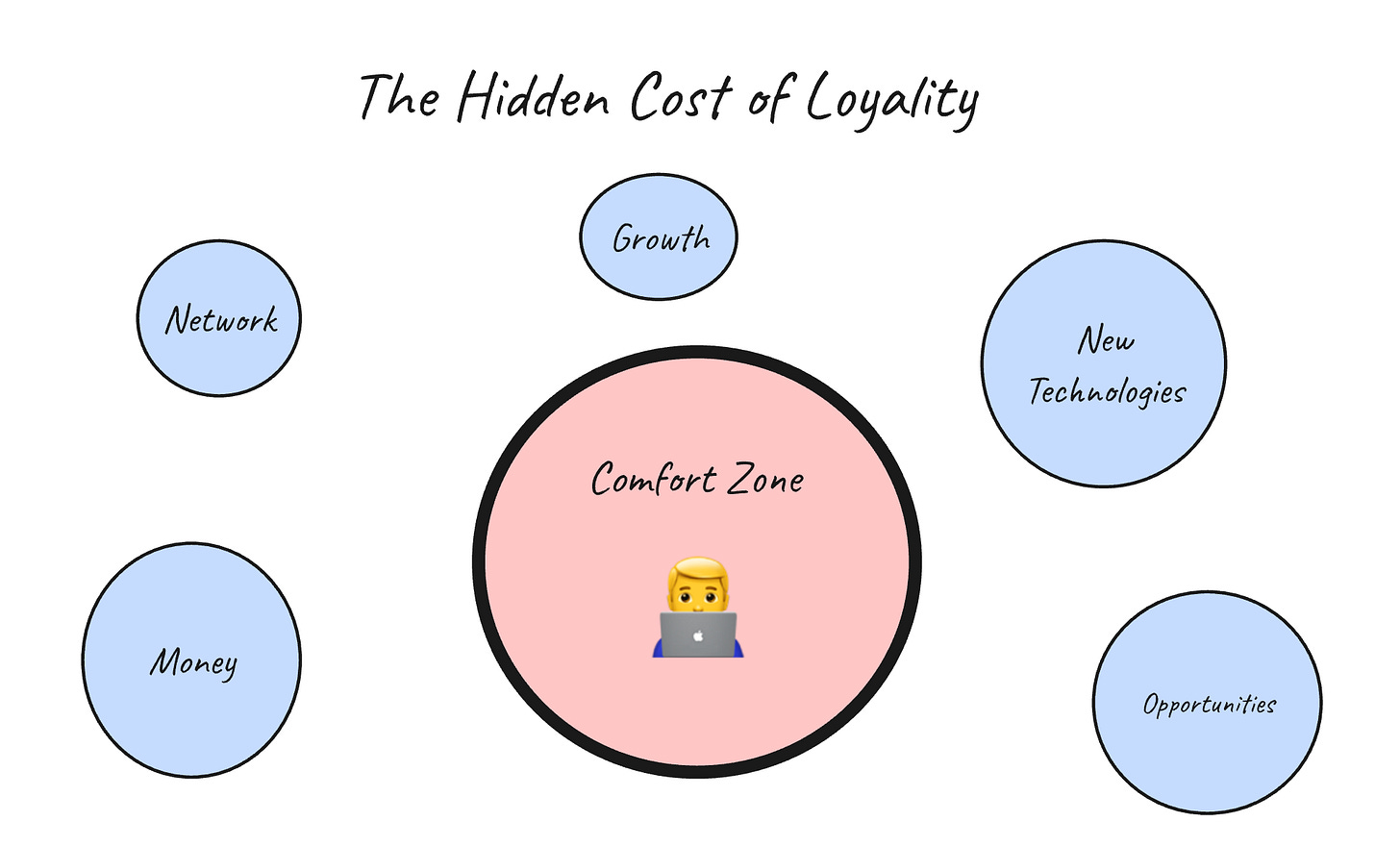The Hidden Cost of Staying Too Long at One Company
Why sticking too long is ruining your career
This newsletter is funded by the support of readers like yourself
If you’re not already a paid subscriber, consider upgrading to get maximum benefits and put your career growth on steroids
I’ve never spent more than 3-4 years in the same job
In all the companies where I worked, it wasn’t bad
I had a good team, interesting work, a stable income, and a decent work-life balance.
From the outside, it looked like a success story - a young engineer growing steadily inside a good company.
But, there is a pattern that always occurs
But by year two or three, I would start to feel something off.
Not dramatically. No burnout. No bad manager.
Just… stuck
The same sprint cycles. The same standups. The same tech stack
Every week felt productive, but nothing felt new
It took me a while to realize what was happening:
I had stopped learning
I’ve seen this happen with multiple folks in my network, and this newsletter is a compilation of my and their learnings
Comfort feels good, but it’s expensive
Early in your career, the growth curve is steep
Every project teaches you something new
Every mistake feels like progress
But over time, you stop learning new things and start getting better at doing the same things
That’s the moment comfort sneaks in
You tell yourself:
“I’ll switch next year.”
“I’m learning soft skills now.”
“I’ll wait until my promotion cycle end.s”
I told myself the same things
But comfort is like compound interest in reverse - the longer you stay in it, the harder it becomes to leave.
Every extra year at the same company usually means:
You master internal tools that don’t exist anywhere else
You get faster at solving the same class of problems
You build credibility, but only inside that system
When you finally start to interview after years, you realize how much you’ve fallen behind
The market had moved on - new frameworks, new standards, new ways of thinking.
The world outside my team had evolved, but your skills hadn’t kept up
It is not just about tech
It is also about perspective
You are sharp in your bubble, but rusty everywhere else.
That’s why I feel - staying too long isn’t safe.
It is actually risky.
The loyalty trap
Most of us confuse loyalty with security
But they’re not the same thing
When you stay too long, you start paying what I call the “loyalty tax”
It looks like this:
Your salary hikes slow down because internal increments rarely match what a new company would pay.
You stop testing your market value, so you don’t know what you’re actually worth.
You get typecast - “the backend guy,” “the infra person,” “the one who knows our internal tools.”
Companies love loyal employees - but the market rewards adaptable ones.
This isn’t about job-hopping every 12 months
It’s about staying aware enough to know when your learning curve has flattened
That curve is everything
Because once it flattens, every extra month you stay adds less to your career than the one before it.
The invisible cost of momentum
Here’s what nobody tells you - when you stay too long, you don’t just lose skills.
You lose momentum.
You stop taking risks.
You stop applying for roles that scare you.
You stop learning new technologies because the old ones “still work”
And when you finally do decide to switch, you realize how much inertia you’ve built up
Interviewing after years feels harder than it should.
Explaining your impact outside your company’s context becomes tricky.
You realize how much of your identity has become tied to your employer, not your work
That inertia - that fear of starting over is the real trap.


